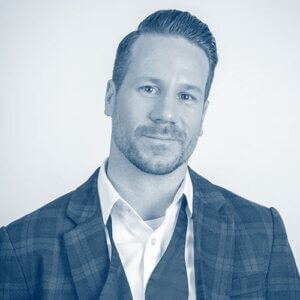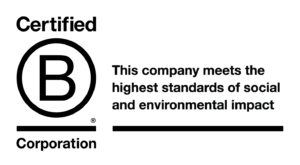Oct 19, 2015
The concept of self-management is in the news a lot these days – mostly thanks to Tony Hsieh’s Holacracy implementation at Zappos.
Like Fitzii did in February, Zappos and now many other organizations around the world are experimenting with structures that don’t involve traditional managers.
This movement was inspired by the breakthrough book, Reinventing Organizations, which coined the term Teal to describe these new organizations.
Self-management is just one of the three breakthroughs of Teal organizations. The other two are evolutionary purpose and the practice of wholeness.
In an upcoming article, we’ll describe evolutionary purpose and how it’s in play at Fitzii. Today we’ll focus on how we’ve unlocked wholeness at Fitzii.
 Wholeness
Wholeness
As radical as organizing ourselves without traditional managers sounds, building an organization where every individual can bring his or her whole self to work, every day, is as radical, probably more.
In traditional organizations a certain degree of personal conformity is expected. The more rigid the hierarchy, the more personal conformity seems to go on. Look up the leadership of a big bank or large public corporation if you’re not sure what I mean.
For many people, working in those organizations means leaving part of themselves at the door – fundamental personal attributes like spirituality, sexual orientation, family status, health, or even dress preferences, personal interests, and sense of humour.
Every time we leave some fundamental personal attribute at the door, we send a subtle message to ourselves that we are valued for our ability to conform. Later, we scratch our heads at the lack of diversity and creativity in our organizations, or worse, feel parts of ourselves have to die off in exchange for a paycheck.
“You can measure an organization by the number of lies you need to tell to be part of it.”
Parker Palmer
Teal organizations strive to open the door to every coworker’s wholeness – inviting people to walk through the door with everything that makes them who they are – mind, body, and spirit.
It’s not a utopia – radical wholeness takes effort, design, time; it results in conflict. In Teal organizations, though, healthy conflict is a precondition to creativity and progress.
Three Tools We Use to Unlock Wholeness at Work
At Fitzii, we’ve been inspired by other Teal organizations’ wholeness practices, especially those related to meetings. We’ve tried a lot of those practices and will discuss them in a future post.
We’ve also tried out a few tools to better understand ourselves and each other, and have found three to be especially valuable for encouraging wholeness:

The Enneagram – the Enneagram is personality typology with nine types. In my experience, the Enneagram is much different than other personality typologies – like, for example, the very popular Myers Briggs Type Indicator (MBTI). Unlike the MBTI, the Enneagram gives you a predictable direction for personal growth. So many people at Fitzii have found the Enneagram useful for self-development and resolving conflict that we often refer to each other by our type numbers – a practice that has confused more than one curious eavesdropper. If you’re curious to use this tool for your own growth, start with The Wisdom of the Enneagram book by Don Richard Riso and Russ Hudson.
 The Five Love Languages – someone recommended this book to me before I got married. Truthfully, it’s both a little bit of pop-psych fluff and one of the most helpful interpersonal tools I’ve ever used. The theory is we give and receive love in five different “languages” – words of affirmation, acts of service, gifts, quality time, and physical touch. We often give in the way we hope to receive and get frustrated when we’re not loved back in the way we want. My language of choice, for example, is physical touch. A simple pat on the back or a high five can lead me to feel valued and accepted. Touch is not the common language of affirmation in North American business culture, but for me, the principle of wholeness at work and the insight of the Five Love Languages has allowed me to ask coworkers for some life-and-work-affirming high fives and shoulder hugs. Honestly, they’re cheaper than bonuses, plaques, and pens and make me feel twice as good.
The Five Love Languages – someone recommended this book to me before I got married. Truthfully, it’s both a little bit of pop-psych fluff and one of the most helpful interpersonal tools I’ve ever used. The theory is we give and receive love in five different “languages” – words of affirmation, acts of service, gifts, quality time, and physical touch. We often give in the way we hope to receive and get frustrated when we’re not loved back in the way we want. My language of choice, for example, is physical touch. A simple pat on the back or a high five can lead me to feel valued and accepted. Touch is not the common language of affirmation in North American business culture, but for me, the principle of wholeness at work and the insight of the Five Love Languages has allowed me to ask coworkers for some life-and-work-affirming high fives and shoulder hugs. Honestly, they’re cheaper than bonuses, plaques, and pens and make me feel twice as good.
 Personality or Psychometric Testing – this is both our product (Fitzii software integrates psychometric testing into the early stages of the hiring process) and our practice (we use multiple, personality tests when considering a new hire). Like Enneagram and Five Love Languages – the operative principle is that identifying and understanding our own and others’ individual differences lays the foundation for healthy conflict and productive division of labour. Psychometric testing – for traits like assertiveness and work pace – is predictive of performance in a huge variety of tasks and situations. We’re on a mission not only to use these tests for our own benefit but to make them widely available and affordable for hiring organizations everywhere.
Personality or Psychometric Testing – this is both our product (Fitzii software integrates psychometric testing into the early stages of the hiring process) and our practice (we use multiple, personality tests when considering a new hire). Like Enneagram and Five Love Languages – the operative principle is that identifying and understanding our own and others’ individual differences lays the foundation for healthy conflict and productive division of labour. Psychometric testing – for traits like assertiveness and work pace – is predictive of performance in a huge variety of tasks and situations. We’re on a mission not only to use these tests for our own benefit but to make them widely available and affordable for hiring organizations everywhere.
The Reinventing Organizations Wiki describes “The ideal of self-organization would be that each person can find their niche such that their way of thinking and being has the opportunity to express itself and that their capacities can be used to the full with the possibility of further development.“
At Fitzii, evaluating and harnessing what makes each of us different – and inviting all of those aspects to be present at work – has led to an experience of work that goes far beyond any of our previous work experiences or expectations.
We hope tools like these will help you discover the same.







